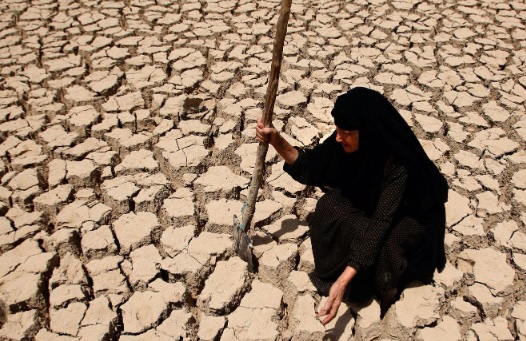| (Prelims: Contemporary International Events) |
Why in News
According to recent reports, the water level in the dam reservoirs supplying water to the northeastern Iranian city of Mashhad has fallen below 3%, and the country is facing a severe water crisis. The president has warned that if the situation does not improve, the capital, Tehran, may have to be evacuated.

Water Crisis in Iran: Key Factors
- Mismanagement and inefficient governance: Including excessive dam construction, illegal well drilling, and unsustainable agriculture.
- Inappropriate agriculture: Agriculture consumes over 90% of Iran's water.
- Climate change and drought: Iran is located in a naturally arid region, and climate change has exacerbated drought events.
- The severe drought that has been occurring for the past five years has exacerbated the situation, leading to reduced rainfall.
- Aging infrastructure: Water supply systems in cities are outdated, leading to significant water leakage.
- Overexploitation of groundwater: The use of powerful pumps and the digging of deep wells has depleted groundwater reserves at an alarming rate.
Effects of the Water Crisis
- Environmental degradation: Major rivers have dried up, and key water bodies like Lake Urmia have shrunk, leading to salt flats and dust storms.
- Social unrest and migration: Water shortages have forced thousands of farmers and rural residents to abandon their livelihoods and migrate to cities.
- Food security and economy: This crisis threatens food security and agricultural productivity, causing significant economic losses.
- The World Bank estimates that water scarcity could reduce Iran's GDP growth rate by 6% by 2050.
- Public health: Poor water quality has increased health concerns.
The Way Forward: Solutions
- The Iranian government has introduced some measures, but experts argue that they are often short-term and do not address the root causes.
- Proposed permanent solutions include implementing modern irrigation techniques, improving water governance, enforcing strict regulations on water consumption, and investing in wastewater treatment.
- Without addressing current mismanagement, the crisis is expected to worsen, potentially rendering parts of the country uninhabitable.




